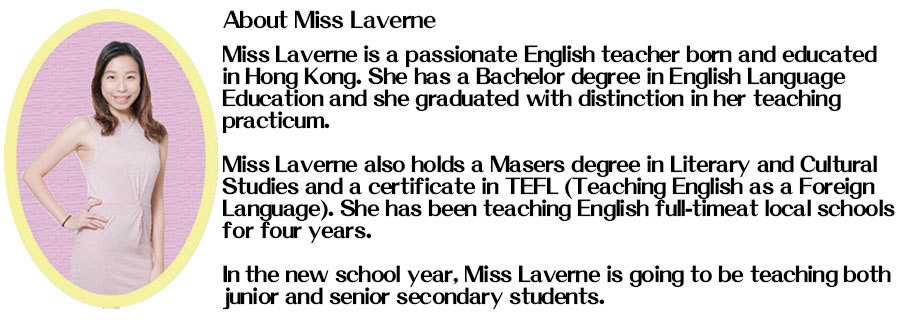The DSE English Paper 4 (Speaking) is divided into two parts: Group Discussion and Individual Response. In order to succeed in this paper, candidates need to do well in four domains: Pronunciation and Delivery (發音與演講方式); Communication Strategies (溝通策略); Vocabulary and Language Patterns (字彙和句式) and Ideas and Organisation (意見與組織).
A. Format of Paper 4
| Procedures | Time allowed |
| Preparation | 10 minutes |
| Discussion | 8 minutes for a group of 4 6 minutes for a group of 3 |
| Individual Response | 1 minute |
B. Common Discussion Tasks
- giving opinions
- comparing and contrasting (比較和對比)
- discussing problems and solutions (討論問題和解決方案)
- making suggestions, choices or improvement
- discussing the pros and cons of a certain topic or issue (討論利弊)
- discussing the advantages and disadvantages of a proposal
- preparing arguments for and/or against a motion (討論支持/反對議題的論點)
Common Contexts/Situations
- work on a project
- organise an event
- promote an activity
- design a poster
- prepare for a debate
C. Things to do during Preparation Time
- Read the text and the discussion task to understand the gist (要旨) of the passage and what to be discussed
- Extract (摘錄) relevant information from the text which can be used later in the discussion
- Make brief notes (use point form instead of writing out the whole speech)
- Organise your ideas coherently (條理清晰地)
D. During the Discussion
- be polite and considerate
- speak audibly and clearly
- listen to others carefully
- respond sensibly to the ideas of others
E. Tips for Succeeding in Each Domain
| Domain | Things to Do | Things to Avoid |
| Pronounciation and Delivery (發音與演講方式) | Speak clearly and naturallyProject your voiceUse appropriate intonation (腔調)Speak at a reasonable pace (恰當的語速) | Speak at a rapid pace with no pausesSpeak too softlyMiss out the sounds at the ends of words e.g. nowadays, experienceCommon pronounciation mistakes: “children” (pronounced “childen”), “drama” (pronounced “jaama”), “think” (pronounced “fing”), “game” (pronounced “gam”), “healthy” (pronounced “heavy”) |
| Communication Strategies (溝通策略) | Encourage other candidates to contribute their ideasParaphrase (改述) or clarify (闡釋) a point to help weaker or confused candidatesAsk for clarification when ideas are not clearly expressedMaintain good eye contact (眼神接觸) with other candidates | Rely heavily on formulaic expression like “I agree with you”, “That’s a good idea” without stating what you are agreeing with or giving a reason for your agreementRead out from the notecard and make very little eye contact with the othersWait for others to invite you to participateTake very long turn to give out a “mini-presentation” (發言時間過長)Speaking over the others (重疊發言)Interrupt in an impolite mannerExpressing your view in an overly loud and aggressive wayDominating the group interaction (壟斷發言) |
| Vocabulary and Language Patterns (字彙和句式) | Able to self-correct (自我修正)Able to use range of sentence patterns | Common language mistakes:Chinglish e.g. ” I very enjoy it”, “There have many people…”, “use my eye to see”Comparatives e.g. “more better”Modals e.ge. “can making”, “may getting”, “they maybe can do”Agreement (主詞與動詞一致性) e.g. “she don’t”Transitive verb e.g. “discuss about”Singular / plural nouns (單複數) e.g. “a children”, “many money”, “many experience”Parts of speech (詞類) e.g. “I felt boring” |
| Ideas and Organisation (意見與組織) | Present ideas clearlyDemonstrate an understanding of the given textGive elaborated (詳盡的), creative ideasRefer to personal experience (個人經驗) | Stray off topic (離題)Making long, speech-like contributionsRepeat the ideas given in the reading materialPresent general (籠統的), vague (含糊的) ideas that are not stimulating to the discussion |
Source: HKDSE English Language Paper 4 Marker’s Comments (2015-2018), HKEAA
Final Recommendation
- Remember that the examination format is collaborative (協作), not competitive (競爭的).
- A lively, interactive (互動的) discussion will help everyone in the group score high.
- Oppositely, if every candidate speaks without listening to each other, it will limit everyone to a lower score.
- Variety (多樣化) is important – use many types of vocabulary, language patterns, and interactions (explaining, asking questions, rephrasing, checking for understanding, etc).
- Don’t be afraid to ask a question if you feel lost – this shows your ability to ask for information and is not a weakness.
- Similarly, being able to simplify your language to help weaker candidates understand you is a really good thing to do.
- At last, keep a positive attitude and try to show that you are enjoying the discussion! 🙂












